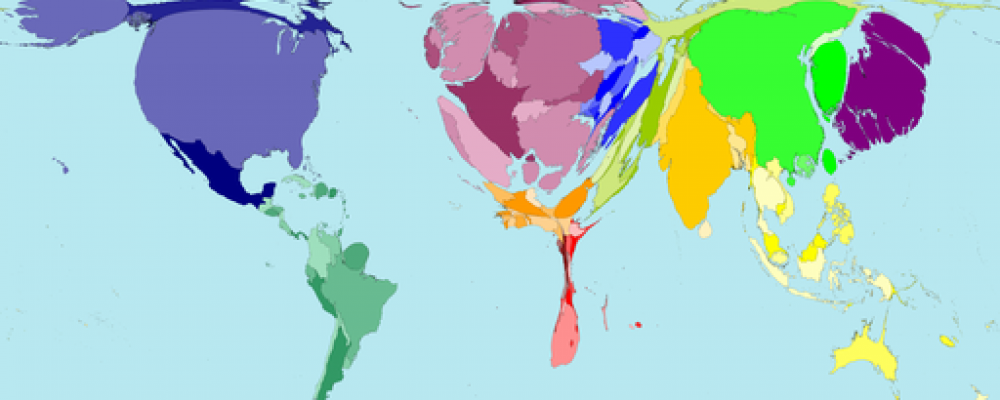NOTE: The Growth Economics Blog has moved sites. Click here to find this post at the new site.
I don’t know that I have anything particularly original to say on the worry that robots will soon replace humans in many more tasks, and what implications this has for wages, living conditions, income distribution, the introduction of the Matrix or Skynet, or anything else. So here I’ve just collected a few relevant pieces of information from about the inter-tubes that are useful in thinking about the issue.
Let’s start with some data on “routine” jobs and what is happening to them. Cortes, Jaimovich, Nekarda, and Siu have a recent voxeu post (and associated paper) on the flows into routine versus non-routine work. In the 1980’s, about 1/3 of American workers did “routine” work, now this number is only about 1/4. Routine work tended (and tends) to be middle-waged; it pays pretty well. What the authors find is that the decline in the share of people doing these middle-wage routine jobs is due to slower flows *in* to those jobs, but not due to faster flows *out*. That is, routine workers were not necessarily getting let go more rapidly, but companies were simply not hiring new routine workers.
Unsurprisingly, people with more education were better able to adapt to this. Higher education meant a higher likelihood of shifting into non-routine “cognitive” tasks, which also is a move up the wage scale (upper-middle wages, say). Perhaps more surprising is that women have been more likely, holding education constant, to move into these cognitive tasks. It is low education males who represent the group that is failing to get routine middle-wage jobs. To the extent that these lower-educated males get work, it tends to be in “brawn” jobs, low-wage manual work.
This last fact is somewhat odd in the context of the robot-overlord thesis. Robots/computers are really good at doing routine tasks, but so far have not replaced manual labor. If there was a group that should have a lot to worry about, I’d think it would be low-education males, who could well be replaced as robots become more robust to doing heavy manual labor. One thought I have is that this indicates that manual work (think landscaping) is not as low-skill as routine tasks like data entry. I think there is more cognitive processing that is going on in these jobs than we tend to give them credit for (where to dig, how deep, should I move this plant over a little, what if I hit a root?, does this shrub look right over here, etc.. ), and that their wages are low simply because the supply of people who can do those jobs is so large.
Brad DeLong took on the topic by considering Peter Thiel‘s comments in the Financial Times. Thiel is relatively optimistic about the arrival of robots – he uses the computer/human mix at Paypal to detect fraud as the example of how smarter machines or robots will benefit workers. Brad worries that Thiel is making a basic error. Yes, machines relieve us of drab, boring, repetitive work. But whether workers benefit from that (as opposed to the owners of the machines) depends not on the average productivity of that worker, but on the productivity of the marginal worker who is not employed. That is, if I can be replaced at Paypal by an unemployed worker who has no other options, then my own wage will be low, regardless of how productive I am. By replacing human workers in some jobs, robots/machines drive up the supply of humans in all the remaining jobs, which lowers wages.
To keep wages high for workers, we will need to increase demand for human-specific skills. What are those? Brad likes to list 6 different types of tasks, and leaves humans with persuasion, motivation, and innovation as things that will be left for humans to do. Is there sufficient demand for those skills to keep wages elevated? I don’t know.
David Autor has a recent working paper that is relatively optimistic about robots/machines. He thinks there is more complementarity between machines and humans than we think, so it echoes Thiel’s optimism. Much of Autor’s optimism stems from what he calls “Polyani’s Paradox”, which is essentially that we are incapable of explaining in full what we know. And if we cannot fully explain exactly what we know how to do (whether that is identifying a face in a crowd, or making scrambled eggs, writing an economics paper, or building a piece of furniture) then we cannot possibly program a machine to do it either. The big limit of machines, for Autor, is that they have no tacit knowledge. Everything must be precisely specified for them to work. There is no “feel” to their actions, so to speak. As long as there are tasks like that, robots cannot replace us, and it will require humans – in conjunction with machines, maybe – to actually do lots of work. Construction workers are his example.
But I am a little wary of that example. Yes, construction workers today work with a massive array of sophisticated machines, and they serve as the guidance systems for those machines, and without construction workers nothing would get done. But that’s a statement about average product, not marginal product. The wage of those workers could still fall because better machines could make *anyone* capable of working at a construction site, and the marginal product of any given worker is very low. Further, adding better or more construction machines can reduce the number of construction workers necessary, which again only floods the market with more workers, lowering the marginal product.
Autor gets interviewed in this video from Ryan Avent at the Economist. It’s a fairly good introduction to the ideas involved with robots replacing workers.


